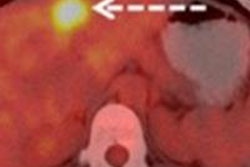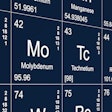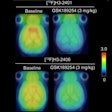Using PET imaging, researchers at NYU Langone Medical Center have linked a receptor in the brain associated with emotions to a narrow cluster of trauma symptoms, including sadness, emotional detachment, and listlessness.
The findings, published online September 17 in JAMA Psychiatry, could lead to personalized treatment for people with specific symptoms of conditions such as post-traumatic stress disorder (PTSD).
Lead author Dr. Alexander Neumeister said that understanding where and how symptoms of PTSD manifest in the brain could lead to the development of more-effective medications and treatment modalities.
The study compared the brain scans of healthy volunteers with those of clinically diagnosed trauma victims with PTSD, major depression, and generalized anxiety disorder. Participants received a radioactive tracer that binds to and illuminates a class of receptors known as kappa opioid receptors when exposed to PET.
The presence of fewer kappa opioid receptors in brain regions associated with emotion meant increasingly intense feelings of malaise, but no feelings of anxious arousal.




















